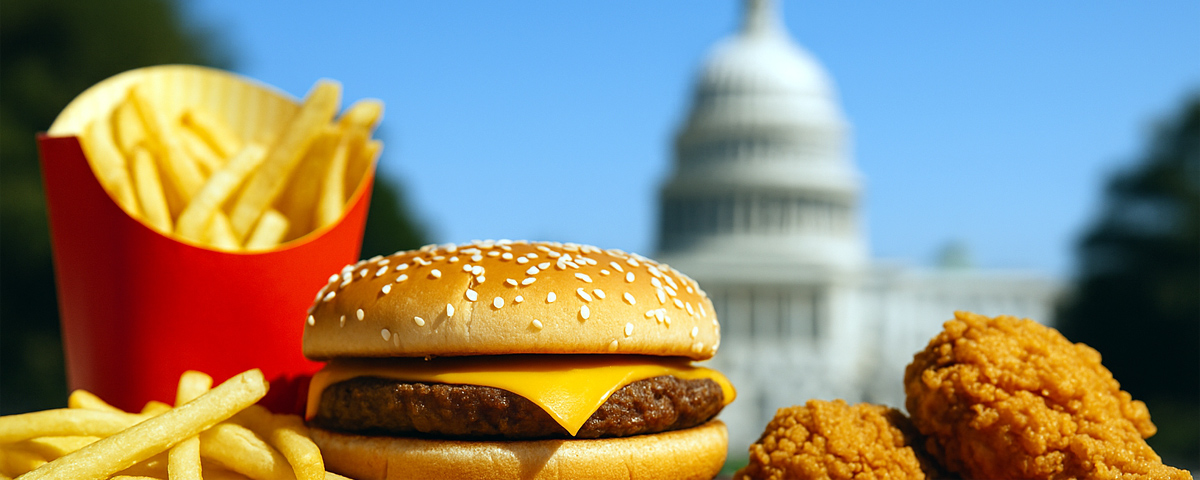Top Food & Beverage Industry Lobbying Spenders (2024)
Coca-Cola: Consistently one of the largest spenders, Coca-Cola spent $4.93 million in 2024 alone. Over the past few years, it has averaged around $7 million annually2.
National Restaurant Association: Spent $3.49 million in 2024. This organization represents a broad range of restaurants and often lobbies on issues affecting the entire food service industry.
McDonald’s Corporation: Invested $2.95 million in lobbying efforts in 2024. As a major fast-food chain, McDonald’s has significant interests in various policy areas, including nutrition guidelines and labor laws.
Mars Inc.: Spent $2.1 million in 20247. Mars is a significant player in the confectionery and pet food sectors and often lobbies on issues related to sugar tariffs and child marketing restrictions.
Starbucks Corporation: Invested $1.54 million in lobbying in 2024. Starbucks focuses on issues like trade, taxes, and environmental policies that impact its global operations.
American Beverage Association: Spent $1.53 million in 2024. This trade group represents major beverage companies and lobbies on issues such as sugar taxes and labeling requirements.
YUM! Brands: Invested $1.46 million in lobbying efforts in 2024. As the parent company of brands like KFC and Pizza Hut, YUM! Brands has interests in nutrition policies, labor laws, and trade agreements.
What The Money Buys
This significant spending translates into real policy influence. For example, the FDA has been slow to implement new labeling rules that would include clearer “high sugar” warnings on packages—a delay many attribute to industry pressure.
Fast-food giants have actively worked to block minimum wage increases. While California’s $20 minimum wage law for fast-food workers passed despite these efforts, similar battles are brewing in other states, with New York becoming a key battleground.
Companies present mixed approaches to sustainability: while Chipotle promotes sustainable sourcing practices, other major players like Mars have resisted packaging reforms that would address plastic waste concerns.
Recent Policy Victories and Setbacks
The food industry has secured several major policy wins in 2024, including:
- Delaying sodium reduction targets
- Defeating proposed soda taxes in multiple jurisdictions
However, there are signs that industry influence may be weakening in some areas. Worker-led movements have achieved notable victories, such as California’s landmark fast-food wage law. Despite these setbacks, food corporations continue to invest millions in Washington lobbying, maintaining significant control over food policy.
Broader Influence Strategies
Beyond direct federal lobbying, food companies employ various strategies to shape global food regulations:
- Behind-the-scenes lobbying using market power and financial resources
- Influencing trade and investment agreements that affect food safety and labeling standards
- Participating in public-private partnerships and multi-stakeholder initiatives like the Global Alliance for Improved Nutrition
- Implementing self-regulation to prevent stricter government oversight
Critics argue these efforts maintain a system where subsidized processed foods remain artificially cheap while fresh produce becomes more expensive. They also contend that industry influence leaves consumers inadequately informed about food additives and processing methods.
The Scale of Influence
The scope of food industry lobbying extends far beyond the companies listed above. Agribusiness alone spent a record $178 million on lobbying in 2023. With hundreds of millions flowing into political channels annually, many public health advocates worry that the system prioritizes corporate profits over public health and fair labor practices.

